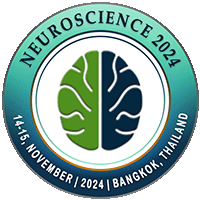
Carole Senechal
Université d'Ottawa, CanadaTitle: Neuroscience in the Courts of Justice
Abstract
Our shared enthusiasm for neurosciences as applied to law (“neurolaw”) stems from an age-old alliance between law and science. It promises to shed light on aspects hitherto unexplored about our neuronal functioning and brain structures. Given the importance of tthe issues at stake that have to be decided on a daily basis by criminal courts across Canada, it begs the question as to the possible contributions of neurosciences to Canadian criminal law. Our review of predominantly Canadian caselaw and of both legal and neuroscientific literature has made it possible to determine that these contributions are to be found at two levels: in the determination of the facts between the parties, on the one hand, and in the emergence of new constitutional norms sculpting the contours of our modern criminal law. In determining the facts between the parties to the dispute (interpartes), neuroscientific evidence does not carry a greater probative value than other expertises, of a psychiatric or psychosocial nature, in the absence of corroboration from other expertises, the accused’s psychiatric history or even lay witnesses. Depending on whether the issue in dspute relates more closely to the mental state of the parties, neuroscience is of increased relevance and usefulness. When the issue to be decided involves more than the determination of mental states (e.g. sentencing), the social and personal consequences of neuroscientific results are more closely scrutinized against the applicable legal criteria (e.g. public safety, rehabilitation). All in all, when it comes to determining relevant facts inter partes, neurosciences have up until now less revolutionized our law than being subsumed by it. On the other hand, recent neuroscientific advances have indeed been called upon by the courts – together with other expertises – in the erga omnes constitutional reshaping of the purpose of our modern criminal law. In this regard we identified three main areas of judicial control, namely, the infliction of cruel and unusual punishment on adolescent offenders, the capacity of consenting, and decriminalization of psychoactive substances. The prediction of offenders’ recidivism from neurological markers is also beginning to be more seriously studied.
Keywords : neurosciences, criminal law, criminal responsibility, sentencing, mental state / disorder
Biography
Carole Sénéchal is a full professor in the Faculty of Education at the University of Ottawa. She has a multidisciplinary background. She did her doctoral studies at the University of Quebec in Montreal in psychology (research/intervention), at the University of Montreal in psychopedagogy and at the University of Laval in law. His first doctorate focuses on autistic syndrome disorders, the second on the psychological health problems of teachers and school leaders and the third doctorate focuses on neuroscience in Canadian criminal law. She also has a background in civil law and common law and is interested in the study of mental disorders in the Canadian justice system. She has 194 publications to her credit (including scientific articles, book chapters and book reviews) and 92 communications at national and international conferences. She is a member of the Order of Psychologists of Quebec and a member of the Canadian Bar.

